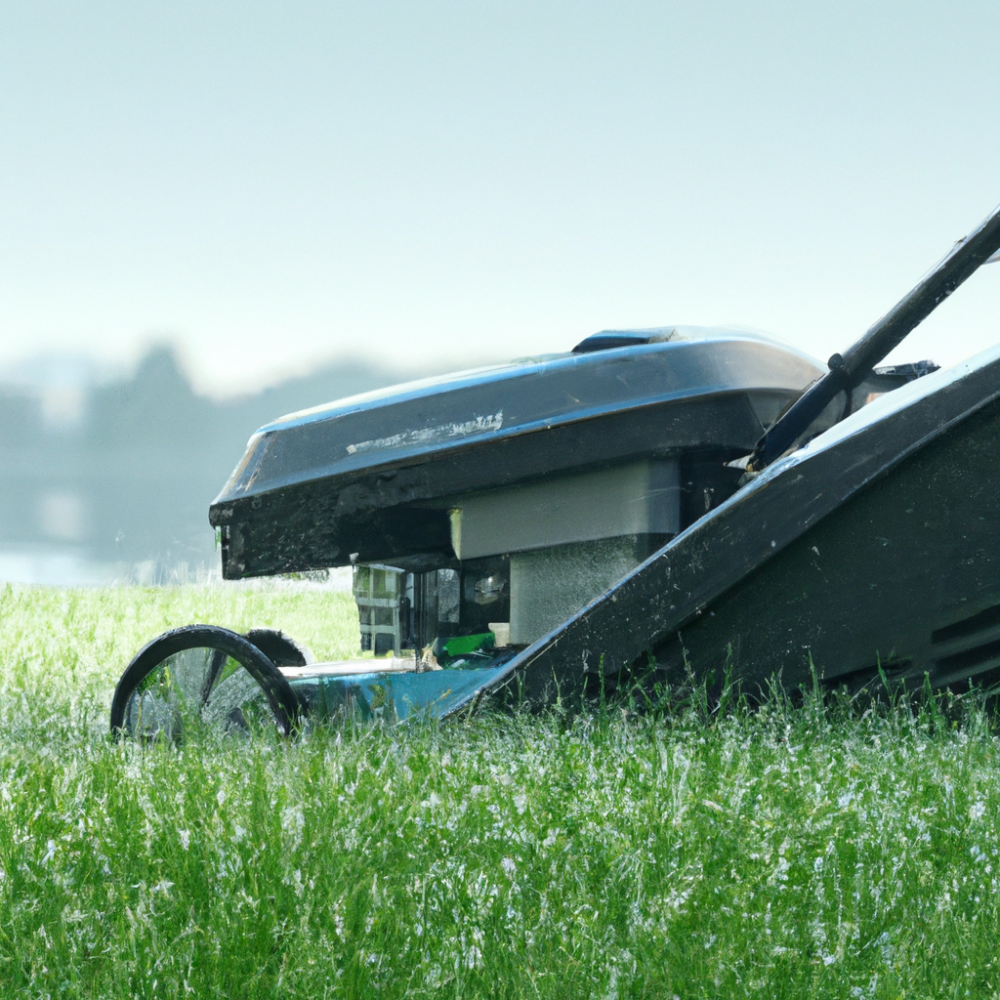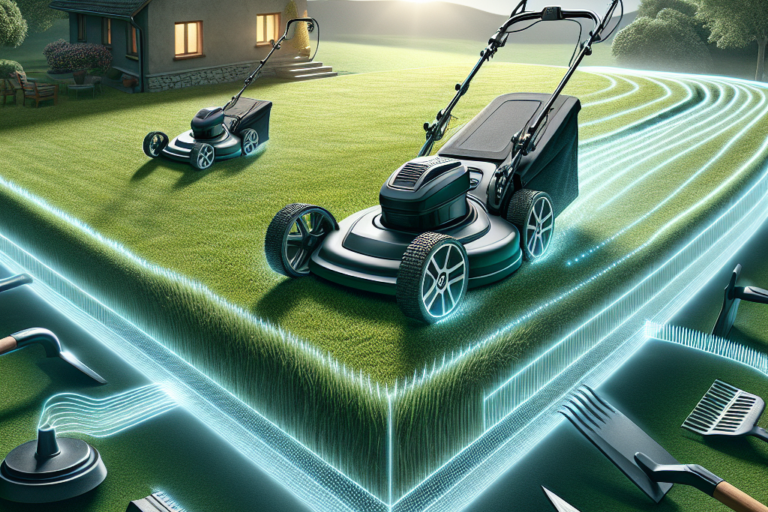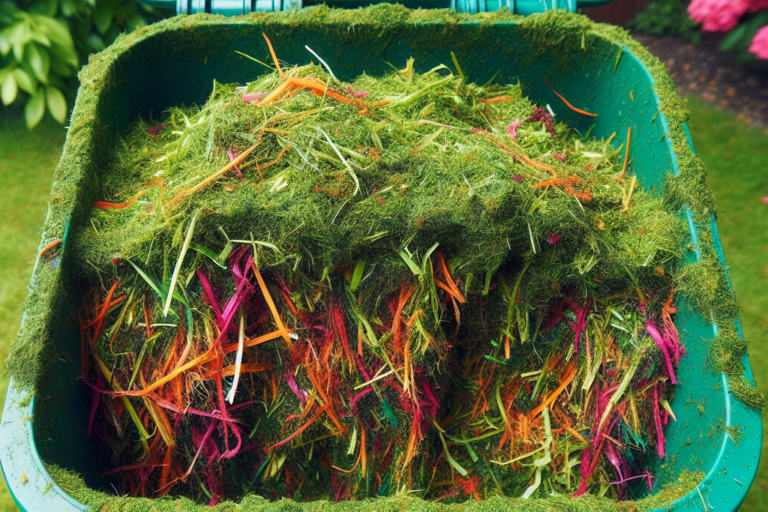You’re out in your backyard, admiring the vibrant greenery of your lawn on a beautiful summer morning. As you glance at your electric lawn mower sitting in the corner, a sudden drizzle starts to fall. Now you wonder, can I still use an electric lawn mower in wet conditions? This article will provide the answer to this common question, ensuring you make the right decision for your lawn maintenance.
Safety Considerations for Electric Lawn Mowers
Electric lawn mowers are a convenient and eco-friendly option for maintaining your lawn. However, there are certain safety considerations that you need to keep in mind, especially when operating them in wet conditions. Wet conditions can pose various risks, including the risk of electric shock and slip and fall hazards. Additionally, electrical malfunctions can occur more frequently when using an electric mower in wet conditions, which can further increase the safety risks.
Risk of Electric Shock
One of the main safety concerns when using an electric lawn mower in wet conditions is the risk of electric shock. Water is a good conductor of electricity, and if moisture gets into the electrical components of the mower, it can increase the chances of electric shock. This can happen if the mower’s housing or electrical connections are not adequately sealed, or if you accidentally come into contact with the electrical components while the mower is wet.
Slip and Fall Hazards
Using an electric lawn mower on wet grass can also increase the risk of slip and fall accidents. Wet grass is more slippery than dry grass, and when combined with the vibrations caused by the mower, it can become even more hazardous. Your footing may become unstable, making it easier for you to slip and potentially injure yourself. It is important to be cautious and take appropriate measures to minimize the risk of slip and fall accidents when operating an electric lawn mower in wet conditions.
Electrical Malfunctions
Electrical malfunctions can become more common when using an electric lawn mower in wet conditions. Moisture can damage the electrical components of the mower, leading to issues such as short circuits or malfunctioning controls. These malfunctions can not only affect the performance of the mower but can also pose a safety risk. It is crucial to ensure that the electrical components of the mower are properly protected and insulated to minimize the risk of electrical malfunctions.
Effects on Mowing Performance
Using an electric lawn mower in wet conditions can also have an impact on its mowing performance. Wet grass can cause grass clippings to clog the mower, reducing its cutting efficiency. It can also lead to potential damage to the lawn, as the wet grass may not be cut evenly, resulting in an uneven and patchy appearance.
Clogging of Grass Clippings
Wet grass clippings tend to stick together and can easily clog the mower’s cutting deck and discharge chute. This clogging can impede the airflow and cause the grass clippings to accumulate, ultimately affecting the cutting efficiency. It may require frequent stops to clear the clogs, which can be time-consuming and frustrating. Additionally, if not addressed promptly, the clogging can lead to further mower complications, such as overheating.
Reduced Cutting Efficiency
Mowing wet grass can also reduce the cutting efficiency of the mower. Wet grass tends to be heavier and stickier, making it more difficult for the blades to make clean cuts. This can result in uneven grass lengths and an untidy appearance. Moreover, the reduced cutting efficiency can also impact the health of the lawn, as it may cause stress and make it more vulnerable to diseases and pests.
Potential Damage to Lawn
Using an electric lawn mower in wet conditions can potentially damage your lawn. Uneven cutting caused by wet grass can create patches of shorter and taller grass, which not only affects the aesthetic appeal but can also lead to a weakened lawn. The wet conditions may also make the soil more susceptible to compaction and rutting, further compromising the overall health of the lawn. Therefore, it is important to consider the potential consequences of using an electric mower in wet conditions and take appropriate precautions.
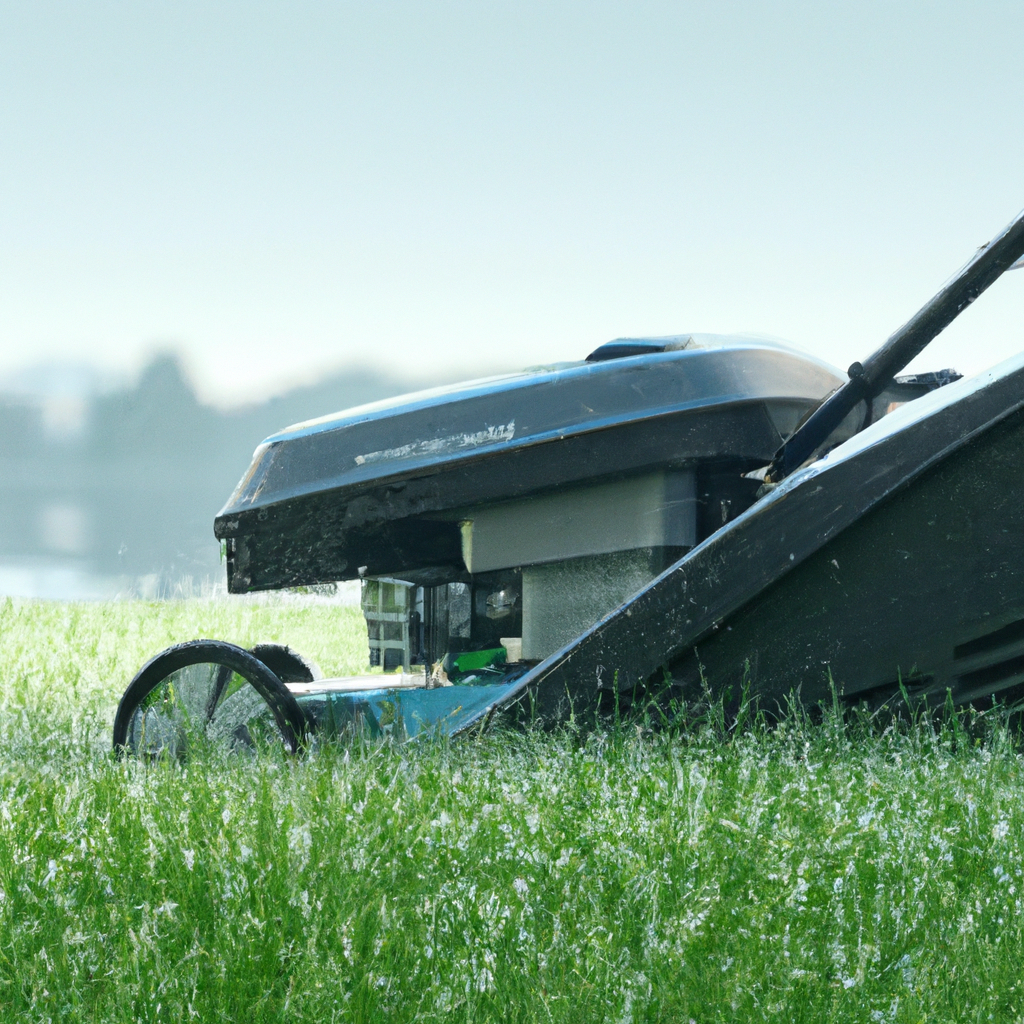
Manufacturer Recommendations
To ensure the safe and efficient use of an electric lawn mower, it is crucial to follow the manufacturer’s recommendations, especially when it comes to using the mower in wet conditions.
Reviewing the User Manual
The user manual provided by the manufacturer is a valuable resource that contains important information specific to your electric lawn mower. It typically includes guidelines on safe usage, maintenance, and any specific considerations to keep in mind when operating the mower in wet conditions. Reviewing the user manual thoroughly will help you understand the manufacturer’s recommendations and best practices for using the mower in different weather conditions.
Contacting the Manufacturer
If you have any specific questions or concerns about using your electric lawn mower in wet conditions, it is advisable to contact the manufacturer directly. They will have a better understanding of the capabilities and limitations of their product and can provide you with personalized advice based on your specific model. By reaching out to the manufacturer, you can ensure that you are following their recommendations and using the mower safely.
Warranty Guidelines
Electric lawn mowers often come with warranty coverage, and it is important to be aware of any conditions or limitations regarding the use of the mower in wet conditions. Some warranties may exclude damage or malfunctions that occur as a result of using the mower in wet conditions. By familiarizing yourself with the warranty guidelines, you can avoid potential issues and ensure that you are not voiding the warranty by using the mower inappropriately.
Weather Conditions
The weather conditions, particularly the presence of moisture, play a significant role in determining whether it is suitable to use an electric lawn mower. Wet conditions can range from light dew or moisture on the grass to rain, heavy downpours, or waterlogged and soggy ground.
Light Dew or Moisture
A light layer of dew or moisture on the grass may not pose a significant risk when using an electric lawn mower. However, it is still important to exercise caution and consider the potential consequences. The moisture can make the grass slightly slippery, increasing the risk of slip and fall accidents. Additionally, the grass clippings may clump together and affect the mower’s cutting efficiency. If the moisture is minimal and the grass is not overly wet, using an electric mower may still be manageable if other precautions are taken.
Rain or Heavy Downpour
Operating an electric lawn mower in rain or heavy downpour is generally not advisable. Rainwater can significantly increase the risk of electric shock and can also cause electrical malfunctions in the mower. The wet conditions can make the ground slippery, making it unsafe to operate the mower. Moreover, the heavy rain can cause the grass to become excessively wet and difficult to cut, which can further impact the performance of the mower. It is best to wait until the rain subsides and the grass dries before using an electric lawn mower.
Waterlogged or Soggy Ground
Waterlogged or soggy ground is another situation where using an electric lawn mower would not be recommended. These conditions can pose a high risk of accidents, as the mower can potentially get stuck or lose stability on the unstable ground. Moreover, the excess water in the soil can potentially damage the mower’s electrical components. It is important to wait for the ground to dry out before attempting to mow with an electric mower.
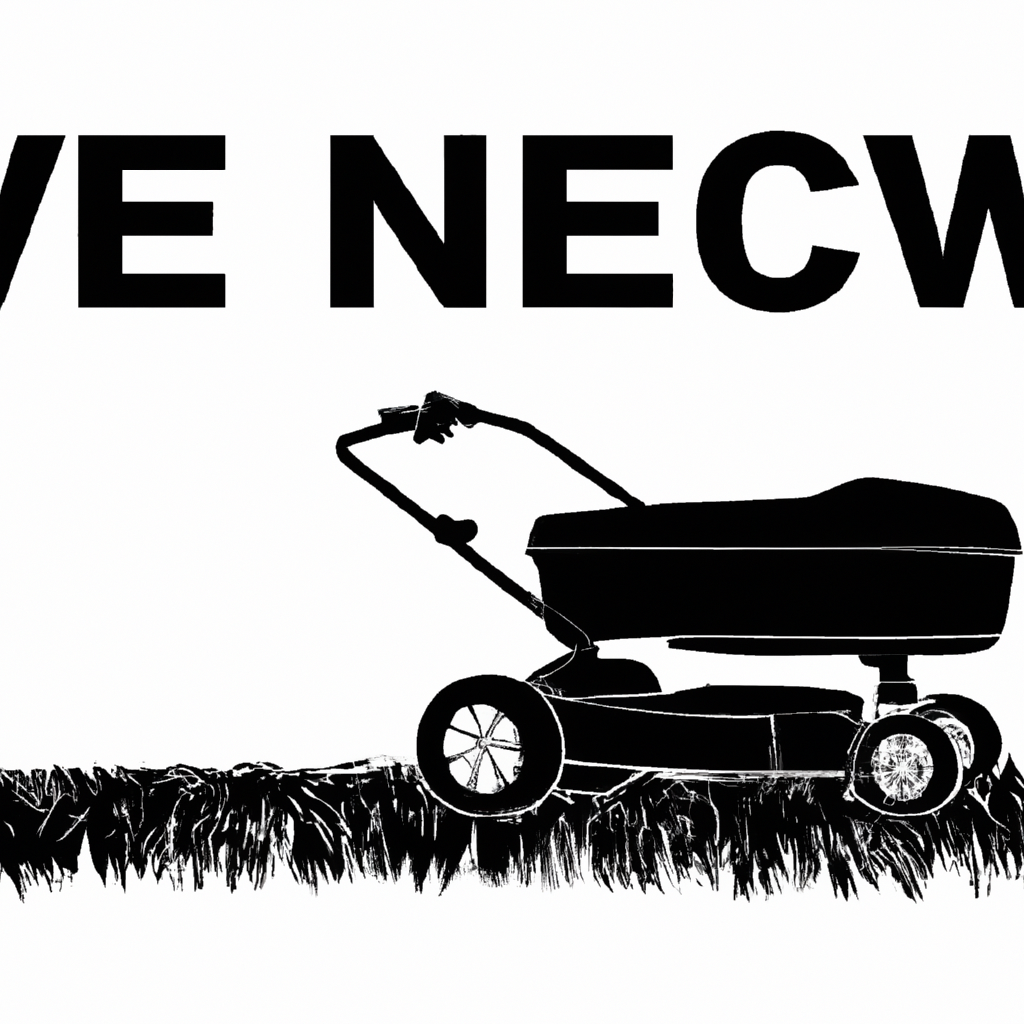
Precautions to Take
While using an electric lawn mower in wet conditions may not be ideal, there are certain precautions you can take if you find yourself needing to mow under such conditions. These precautions will help minimize the risks associated with wet conditions and ensure safer operation of the mower.
Inspecting the Mower
Before using your electric lawn mower, it is important to inspect it thoroughly, especially if you intend to use it in wet conditions. Check for any signs of wear or damage, particularly in the electrical components and the housing. Ensure that all connections are secure and that the mower is in good working condition. Regular maintenance and inspection are essential to identify any potential issues that may be aggravated by wet conditions.
Ensuring Proper Grounding
Proper grounding is crucial when using an electric lawn mower, particularly in wet conditions. Ensure that the power cord is undamaged and properly connected to a grounded outlet. Avoid using extension cords that are not designed for outdoor use or that are damaged. It is important to have a reliable and secure electrical connection to minimize the risk of electrical malfunctions and electric shock.
Avoiding Wet Areas
To minimize the risks associated with wet conditions, it is advisable to avoid mowing in areas that are excessively wet or waterlogged. Focus on areas where the ground is relatively dry, as this will make the operation safer and reduce any potential damage to the mower. Additionally, by avoiding wet areas, you will also prevent the grass clippings from becoming excessively wet and causing clogs in the mower.
Alternative Mowing Methods
If you find that it is not suitable to use an electric lawn mower in wet conditions, there are alternative mowing methods you can consider. These methods can help you maintain your lawn while minimizing the risks associated with wet conditions.
Using a Gas-Powered Mower
A gas-powered mower can be a viable alternative to an electric mower in wet conditions. Gas-powered mowers are generally more resistant to moisture and can handle wet grass better. However, it is still important to exercise caution and follow safety guidelines when operating a gas-powered mower in wet conditions.
Utilizing Manual Push Mower
A manual push mower, also known as a reel mower, can be another alternative for mowing in wet conditions. Manual push mowers do not rely on electricity and are not as susceptible to electrical malfunctions. They can handle wet grass more efficiently and can be a safer option when operating in wet conditions. However, manual push mowers require more physical effort and may not be suitable for larger lawns.
Hiring Professional Services
If you are hesitant about mowing in wet conditions or prefer to leave the task to professionals, hiring a lawn care service can be a viable option. Professional lawn care services have the necessary equipment and expertise to handle mowing in various weather conditions, including wet conditions. They can ensure your lawn is properly maintained while minimizing any risks associated with wet conditions.
Maintenance Tips
Regular maintenance of your electric lawn mower is essential to ensure its optimal performance and longevity. When using the mower in wet conditions, it becomes even more important to properly clean, inspect, and maintain the mower to minimize any potential issues.
Cleaning and Drying the Mower
After each use in wet conditions, it is crucial to thoroughly clean and dry the mower. Use a brush or cloth to remove any grass clippings, dirt, or debris that may have accumulated on the mower. Pay special attention to the cutting deck and discharge chute, as they are more prone to grass clippings clogging. Additionally, make sure to dry the mower completely to prevent moisture from causing electrical malfunctions.
Checking Electrical Connections
Regularly checking the electrical connections of your electric lawn mower is vital, especially after using it in wet conditions. Ensure that all connections are secure and that there are no signs of damage or corrosion. If you notice any issues, it is important to address them promptly to prevent further electrical malfunctions. Regularly inspecting the electrical connections will help maintain the safety and performance of the mower.
Sharpening and Replacing Blades
The blades of an electric lawn mower can become dull over time, affecting its cutting efficiency, particularly in wet conditions. Regularly sharpening the blades will ensure clean and precise cuts, reducing the risk of clogging and uneven grass lengths. If the blades are severely damaged or worn out, it may be necessary to replace them. Properly maintained and sharpened blades will contribute to the overall performance and appearance of your lawn.
Potential Consequences
Using an electric lawn mower in wet conditions can have various potential consequences, ranging from damage to the lawn to compromised electrical safety and an increased risk of accidents.
Damage to the Lawn
Mowing wet grass with an electric mower can potentially damage the lawn. Uneven cutting, caused by the wet grass and clogging, can result in an untidy appearance and weaken the overall health of the lawn. Additionally, the wet conditions can make the soil more prone to compaction and rutting, further damaging the lawn. It is important to consider the potential consequences and assess the conditions before deciding to mow in wet weather.
Compromised Electrical Safety
Using an electric lawn mower in wet conditions increases the risk of compromised electrical safety. Moisture can damage the electrical components of the mower, leading to electrical malfunctions or even electric shock hazards. It is crucial to ensure that the electrical connections are secure, the power cord is properly grounded, and the mower’s housing is sealed to minimize the risk of electrical hazards. Failing to do so can have serious consequences for both your safety and the mower’s effectiveness.
Increased Risk of Accidents
Operating an electric lawn mower in wet conditions can also increase the risk of accidents. Wet grass can be slippery, making it easier for you to lose your footing and potentially fall. The vibrations caused by the mower can further compromise your stability, increasing the risk of accidents. Additionally, the potential issues with clogging and reduced cutting efficiency can lead to frustration and distraction, which may also contribute to accidents. It is essential to be aware of the increased risk and take appropriate precautions to ensure your safety.
Advantages of Dry Conditions
While mowing in wet conditions may not be ideal, there are several advantages to waiting for dry conditions before using an electric lawn mower.
Improved Cutting Efficiency
Dry conditions allow the electric mower to operate at its optimal cutting efficiency. The grass is less likely to stick together or clog the mower, resulting in a smoother and more efficient mowing experience. The dry grass is easier for the blades to cut, ensuring a clean and even surface. Mowing in dry conditions can enhance the overall appearance of your lawn and make the task more efficient.
Reduced Risk of Electric Shock
Using an electric lawn mower in dry conditions significantly reduces the risk of electric shock. Dry conditions minimize the chances of moisture coming into contact with the electrical components, reducing the risk of electrical malfunctions and electric shock hazards. By waiting for dry conditions, you prioritize your safety and the longevity of your electric lawn mower.
Better Long-Term Performance
Operating an electric lawn mower in dry conditions can have long-term benefits for the mower’s performance. Dry grass is less likely to accumulate and cause clogging, reducing the strain on the motor and extending its lifespan. Additionally, the absence of moisture minimizes the risk of rust and corrosion on the mower’s components. By prioritizing dry conditions, you contribute to the long-term efficiency and durability of your electric lawn mower.
Conclusion
Operating an electric lawn mower in wet conditions requires careful consideration of the various safety risks and potential consequences. While it may be possible to use an electric mower in light dew or moisture, mowing in rain, heavy downpours, or waterlogged ground is not recommended. The risk of electrical shock, slip and fall accidents, and damage to the lawn outweigh any potential benefits. When faced with wet conditions, it is advisable to review the manufacturer’s recommendations, consider alternative mowing methods, and prioritize the safety and long-term performance of your electric lawn mower. By taking these precautions, you can ensure a safer and more effective lawn mowing experience.
